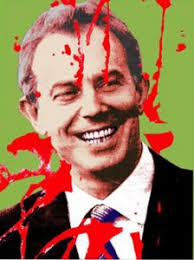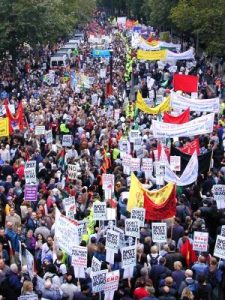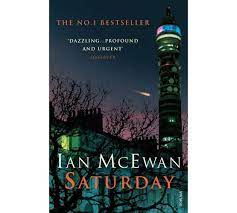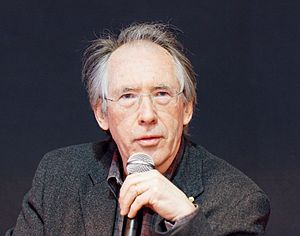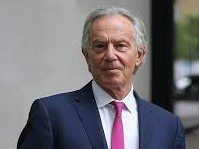
© DNA Films / Sony Pictures Releasing
Danny Boyle is a venerated British filmmaker. His resume includes nasty wee Edinburgh crime noir Shallow Grave (1993), zeitgeist-surfing ‘cool Britannia’ classic Trainspotting (1996), Oscar-winning Slumdog Millionaire (2008) and the opening ceremony to the 2012 London Olympics that, briefly, gave Britain a little street credibility in the eyes of the world. Obviously, the small-minded and idiotic result of the Brexit referendum in 2016, when a narrow majority of British people voted to leave the European Union, put an end to that street cred.
However, as a connoisseur of zombie movies, I feel Boyle’s biggest cultural contribution might be directing the 2002 movie 28 Days Later, which was written by novelist and fellow-filmmaker Alex Garland. This follows events after the escape from a research laboratory of a virus that transforms its victims into wrathful, slavering, hyperactive zombies. 28 Days Later helped to establish the idea that zombies don’t have to lumber mindlessly and slowly, as they had in nearly all zombie movies prior to 2002. They could be fast. They could run. That’s although the film doesn’t actually feature typical, reanimated-corpse zombies, but virus-infected people who are duly referred to as ‘the infected’.
As in all good zombie movies, Boyle’s infected act as metaphors. In 28 Days Later, they symbolise the rage that’d lately become common in British society. Terms like road-rage, air-rage and even shopping-trolley rage had only recently entered the country’s vocabulary in 2002.
In the first sequel to 28 Days Later, Juan Carlos Fresnadillo’s underrated 28 Weeks Later (2007), the US Army occupy Britain after the epidemic. There’s an obvious metaphor at work here too. The Americans set up HQ (and marshal together the survivors) in a supposedly safe area of London they call the ‘Green Zone’, their efforts to end the contagion actually lead to it spreading among those who were hitherto uninfected, and their firepower ends up killing friend and foe alike… All horribly reminiscent of what the real-life American military was doing in Iraq at the time.
Now Boyle and Garland have reunited to make 28 Years Later, the first part of a projected new trilogy in the franchise – the second film is already in the can and will be released next January, and the third one will be made if the first two make money. Later in the trilogy, Cillian Murphy, the breakout star of 28 Days Later, is supposed to be returning in the role of Jim, the character he played in the original film. And before you read further, beware – from here on, there will be spoilers for all three movies made so far.

© DNA Films / Sony Pictures Releasing
Well, 28 Years Later‘s metaphor is pretty on the nose. Britain, overrun by the infected, and with a few uninfected inhabitants surviving in isolated, heavily-fortified communities, has been quarantined from the rest of Europe. Other European countries’ navies patrol it to make sure nobody carries the infection off its shores. (28 Weeks Later ended with the virus making it to France, but we’re informed that that outbreak was contained.) So infected Britain in the 28 Years Later universe is a symbol of Brexit Britain in our universe.
Actually, an expository map shows Ireland infected and quarantined too, though nobody mentions this in the film. It’s a grim echo of the prediction once made by arch-Brexiter and gobshite Nigel Farage that, post-Brexit, Ireland would follow Britain out of the EU.
28 Years Later begins in a village on an island off the English coast, connected to the mainland by a causeway that, thanks to the tide, is underwater much of the time. The villagers are depicted living a low-tech lifestyle: rearing sheep and pigs, growing vegetables, cooking full-English breakfasts on wood-burning Raeburn stoves, sipping home-brewed beer in the local pub and participating in singalongs under an ancient portrait of Queen Elizabeth II. This would no doubt appeal to many of Nigel Farage’s supporters, longing for a simpler version of England back, say, in the 1940s, that never really existed – prior to multiculturalism, wokeness and other such evils. And no, I can’t recall seeing anyone in 28 Years Later’s village scenes who’s a person of colour.
The movie centres on Spike (Alfie Williams), a twelve-year-old lad who’s grown up on the island and is facing a daunting rite of passage. His father Jamie (Aaron Taylor-Johnson) is taking him for the first time to the mainland, where he’s expected to prove his manhood by using his bow and arrow on the infected and making a few ‘kills’. (Bullets have run out by this point.) Jamie’s timing of this seems tactless since his wife, Spike’s mum, Isla (Jodie Comer) is currently bedridden, stricken by a mysterious illness that has her oscillating between lucidity and delirium.
Following their sortie on the mainland, Spike learns of the existence of a man called Ian Kelson (Ralph Fiennes) who’s been living there alone and has dedicated himself to building a spectacular ‘bone temple’ using the remains of, and commemorating, all those who’ve perished since the contagion began 28 years ago. Though evidently mad now, Kelson was, back in civilised times, a doctor – one thing Spike’s island home doesn’t have. So he brings his sick mother to the mainland, in search of Kelson, hoping he’ll be able to cure her. Along the way, they encounter a Swedish soldier (Edvin Ryding), stranded in England after the patrol-ship he was on sunk off its coast. They acquire a baby, birthed by an infected woman but somehow uninfected itself. And, predictably, they have to contend with the infected.
These are mostly similar to the infected in 28 Days and 28 Weeks Later, but some have devolved and others evolved. There are swollen, leprous-skinned specimens called Slow Lows, crawling along the ground and stuffing their mouths with worms. Conversely, there are also Alphas: hulking, superstrong, superfast and relatively more intelligent, all beard, hair and muscles (and large, swinging willies), with a penchant for not only ripping their victims’ heads off but for pulling their spines out through their neck-stumps.

© DNA Films / Sony Pictures Releasing
Well, I’ll say first of all that 28 Years Later certainly isn’t perfect. It has much that’s inconsistent and illogical. Firstly, scriptwriter Garland shifts the goalposts regarding the infected. In the 2002 film, the survivors realise they only need to stay alive for the length of time it takes for the infected to starve to death because, basically, they’re too crazy to eat. They bite and infect their victims but don’t munch on them. In 28 Weeks Later, they have all starved to death and the US Army decide it’s safe to enter Britain. When the virus strikes again, it’s because of a survivor (Catherine McCormack) who’s a medical anomaly – she unwittingly carries the virus without showing any symptoms of it. In the new movie, though, it transpires the infected can eat. They’ve sustained themselves mostly by preying on the red deer that now roam Britain in huge herds.
It’s Boyle and Garland’s franchise, so they can reboot it any way they like, I suppose. But it’ll be interesting to see how they square this with the return in the upcoming sequels of Cillian Murphy from 28 Days Later.
Also, the contagiousness of the infected’s bodily fluids that was so dangerous in the earlier films – Brendan Gleeson succumbs when a drop of blood falls into his eye in 28 Days Later, Robert Carlyle when he gets saliva on his lips in 28 Weeks Later – is disregarded here. Humans cheerfully impale and hack at the infected at close quarters without fearing arterial sprays. Taylor-Johnson encourages his son to fire arrows into the infected practically point-blank. And I can’t see how a human embryo can gestate inside an infected mother for 40 weeks without the resulting baby emerging from the womb as a slavering, bite-y, red-eyed little monster itself. Science goes out of the window sometimes. The existence of the Alphas is explained as certain people reacting to the virus like they’re suddenly ‘on steroids’. But I can’t imagine a virus transforming some of its victims into what are basically deranged versions of Jason Mamoa.
Other things are illogical too. Fiennes’ character slathers himself in iodine until he’s almost as orange as Donald Trump because iodine seems to repel the virus. In this post-apocalyptic world, where does he get all his iodine from? He’s survived in the infected-infested wilderness for decades, gradually building his bone temple, but how? He refers to a river helping to keep the infected at bay, but late on an Alpha comes stomping into his abode without any apparent difficulty. And the temple’s centrepiece, a towering pillar of skulls, is alarmingly precarious when Alfie first encounters it. He touches it and a few skulls immediately fall off. Yet later, it’s strangely solid when Alfie has to climb to its very top.
But, despite all that, I did enjoy 28 Years Later and would probably give it eight out of ten. Boyle orchestrates the horror sequences with customary panache, while the tension is leavened with both humour and pathos. Much of the humour comes from Spike’s interactions with the Swedish soldier, who’s from an uninfected world where life has developed into the 2020s along lines we’re familiar with. He talks of smartphones, being online, using delivery drivers and ladies having ‘work done’, all to the bewilderment of poor Spike (and to the amusement of the Singaporean audience with whom I saw the film).

© DNA Films / Sony Pictures Releasing
Meanwhile, there’s pathos when Spike finally gets his mum to Fiennes’ Dr Kelson. The latter is not, as we’d expected, a dangerous madman like Marlon Brando’s Colonel Kurtz in Apocalypse Now, but a thoughtful, pacifistic man who, with his bone temple, has found an unconventional way of dealing with and acknowledging the massive horror he’s witnessed around him. And Kelson helps Spike learn some painful life lessons. I thought Gleeson’s death in 28 Days Later, caused by a freak accident that wouldn’t have happened if he’d been standing a few inches to the side, was one of the saddest scenes in horror movies. But there’s one here that equals or surpasses it for tragedy.
The performances greatly enhance the movie. Young Alfie Williams is a revelation as Spike, likeable from the start, but getting more likeable as we follow him through the often difficult and harrowing learning curves the plot throws at him. Taylor-Johnson is effective as Jamie, a man who’s a good dad but not a good husband, while Comer makes Isla a rounded and convincing character. During those moments when the script lets her be cogent, we understand why Spike takes the risks he does in getting her to a doctor. But Fiennes ultimately steals the show. After the intensity of the movie’s first two-thirds, his appearance as the kindly Kelson is a relief, indicating that some humanity and decency has survived in this brutal world.
But I’m not happy about the film’s ending, especially as it comes so soon after Fiennes’ gravitas. Its final minutes have upset a few people with their unexpected reference to a dark episode in recent British history, but I don’t mind that. I think it’s a pretty audacious move by Garland’s script. Rather, I don’t appreciate the goofy, cartoony manner in which those last minutes are filmed, which jar with the sombre tone of everything that’s happened previously. This makes me nervous about what the sequel will be like (and it isn’t directed by Boyle, but by Nia DaCosta).
One reason why I like 28 Years Later overall is its setting: northeast England, where I lived in the early 2000s. The island the survivors are holed up on is actually Lindisfarne, Holy Island, which as far as I know hasn’t appeared in a film since Roman Polanksi directed Donald Pleasence in Cul-de-sac there in 1966. I cycled to Lindisfarne once, and I can only assume that when Spike and Jamie go sprinting along the causeway to it in 28 Years Later, they don’t have a strong east wind blowing into their faces like I did when I struggled along it on my bike. Here are a couple of photographs I took then:



Meanwhile, I’m no expert on northeastern accents and I couldn’t distinguish between a Geordie one, a Mackem one and a Smoggie one. However, to me, most of the cast at least try to sound like they come from that part of the world, which is nice.
Also, the film is a welcome reminder of the northeast’s beautiful landscapes and I guess at least some of it was shot in Northumbria’s Kielder Forest. Its depiction of local geography is rather barmy, though, giving the impression that you can walk in a few hours from Lindisfarne to the Angel of North (which is south of Gateshead) or to Sycamore Gap (which is off the A69 from Newcastle to Carlisle, between Hexham and Haltwhistle). Sycamore Gap hit the headlines in 2023 when the iconic sycamore tree there was cut down by a pair of morons who deserved to have their heads ripped off and their spines pulled out of their neck-stumps. Sweetly, in 28 Years Later, Boyle digitally restores the tree because, in the movie’s timeline, that act of vandalism never happened.
This brings the series full circle for me because it was in northeast England that I originally saw 28 Days Later. Indeed, I saw it at a special premiere event at the Tyneside Cinema in Newcastle-upon-Tyne, which both Boyle and Garland attended. They introduced the film beforehand and answered questions from the audience afterwards. Boyle seemed laidback and was even unruffled when a member of the Geordie audience told him he hadn’t liked the look of the film, shot on digital video cameras, at all. Garland was more combative and sounded particularly pissed off when someone mentioned the makers of another 2002 zombie movie, Resident Evil, who’d claimed he’d copied the beginning of 28 Days Later from the beginning of their film. Garland pointed out that both films were obviously inspired by the opening chapter of John Wyndham’s classic end-of-the-world novel Day of the Triffids (1951).
After the screening, I was tempted to put up my hand and ask Garland why the infected took so long to die. If they were too crazy to eat, wouldn’t they be too crazy to drink too, and wouldn’t they die of thirst a lot sooner? But I decided not to, not wanting to infect him with the rage virus.

© DNA Films / Fox Searchlight Pictures

